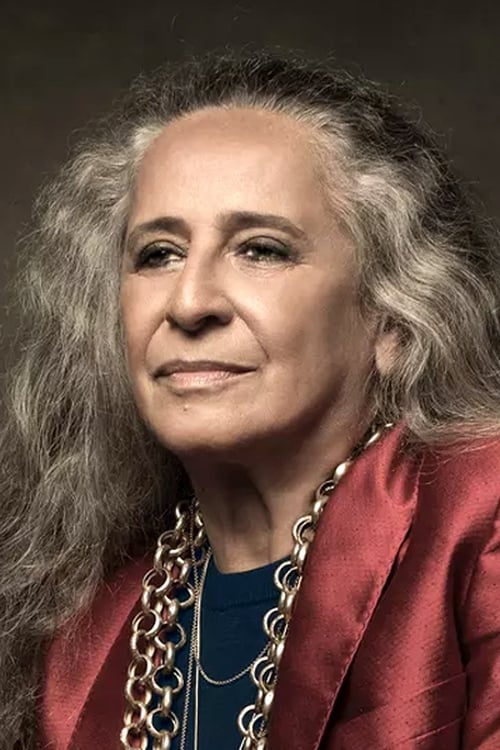
Maria Bethânia
Рождение : 1946-06-18, Santo Amaro da Purificação, Bahia, Brazil
История
Maria Bethânia Viana Teles Veloso (born 18 June 1946) is a Brazilian singer and songwriter. Born in Santo Amaro, Bahia, she started her career in Rio de Janeiro in 1964 with the show "Opinião" ("Opinion"). Due to its popularity, with performances all over the country, and the popularity of her 1965 single "Carcará", the artist became a star in Brazil.
Bethânia is the sister of the singer-songwriter Caetano Veloso and of the writer-songwriter Mabel Velloso, as well as being aunt of the singers Belô Velloso and Jota Velloso. The singer has released 50 studio albums in 47 years of career, and is among the 10 best-selling music artists in Brazil, having sold more than 26 million records. Bethânia was ranked in 2012, by Rolling Stone Brasil magazine, as the fifth-biggest voice of Brazilian music.
Bethânia is the sixth out of eight children born into the family of José Telles Veloso (Seu Zeca), a government official, and Claudionor Viana Telles Veloso (Dona Canô), a housewife.
The name Maria Bethânia was chosen by her brother Caetano Veloso after the homonymous hit song written by composer Capiba and famous at the time in the voice of Nélson Gonçalves.
In her childhood, she had aspirations to become an actress. However, her mother was a musician, so music was prevalent in the Veloso household. Though Bethânia was born in Santo Amaro da Purifição, her family moved to Salvador, Bahia when she was 13. The move allowed her to experience the bohemian, intellectual circles of the city, as well as to visit theaters. When she was 16, her brother Caetano Veloso invited her to sing in a film for which he was producing the soundtrack, but she refused. Nevertheless, the film's director, Álvaro Guimarães, liked her voice and invited the young musician to perform in the 1963 Nélson Rodrigues's musical Boca de Ouro. This time Bethânia accepted, and for the first time in her life she went on stage to sing for an audience, opening the play performing a samba by Ataulfo Alves.
That same year, Bethãnia and her sister met singers Gilberto Gil and Gal Costa; Caetano had been invited to put on an MPB show to inaugurate the Teatro Vila Velha. The four artists got together and, in 1964, staged Nós, por exemplo (We, for example).
The show was a success and was presented again twenty months later, with the participation of singer-songwriter Tom Zé. That same year, the group mounted another show called Nova Bossa Velha e Velha Bossa Nova (New Old Bossa and Old New Bossa). Still in that year, directed by Caetano and Gil, Bethânia performed another musical, this time on her own, called Mora na Filosofia (Lives in Philosophy).
She began performing again with her brother, as well as Gilberto Gil, Gal Costa, and Tom Zé, at the opening of the Vila Velha Theater in the next year. During one of these performances, the bossa nova musician Nara Leão offered her an opportunity to take her place in a series of performances titled "Opinião". ...
Source: Article "Maria Bethânia" from Wikipedia in English, licensed under CC-BY-SA 3.0.

Self
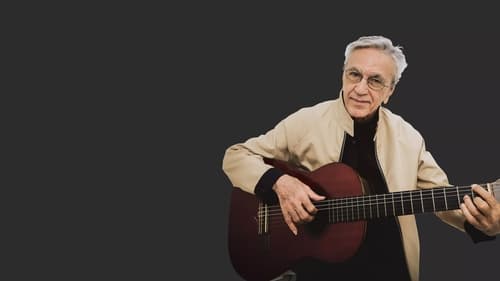
Self
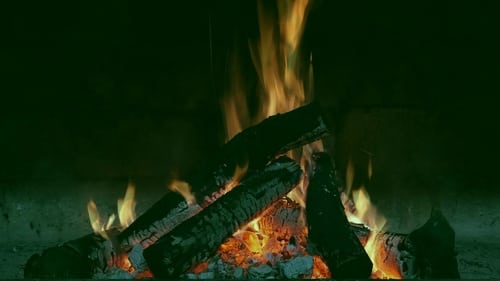
Voice Mermaid

Intérprete

Herself
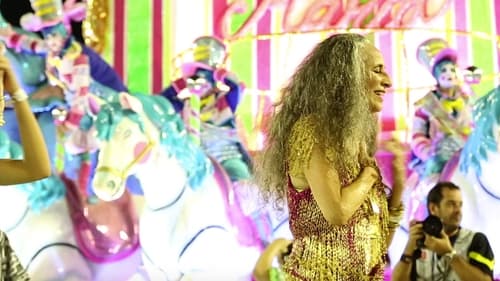
Self
A record on Brazilian samba school Estação Primeira de Mangueira's victory on the 2016 carnaval parade. Mangueira's parade that year was a homage to singer Maria Bethânia. The documentary also follows Bethânia on the celebrations of Our Lady of Purification, in Bahia, northeast of Brazil.

Intérprete
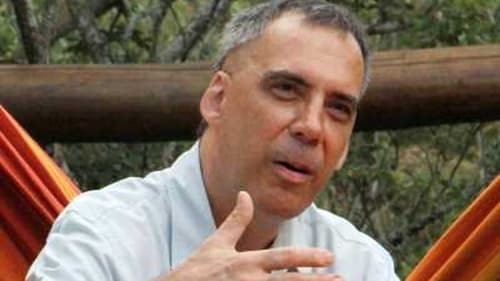
Self
From his origins as a poet to his success as a singer and composer, Arnaldo Antunes revisits the most remarkable moments of his career.

Self
Dorival Caymmi was one of the inventors of the Bahian imagination. In his 94 years of life, Caymmi composed, sang, wrote, illustrated and thought about his Bahia, even far from it. His family, partners, friends and fans remember his history, which made him one of the pillars of Brazilian culture.

Herself
While the differences in religious beliefs tend to separate and divide, the image of Nossa Senhora de Aparecida is like her cloak, covering and protecting the body of her followers. Aparecida has devout followers of all social classes, religions and regions of the country. Aparecida is a symbol of the maternal heart, kindness and tolerance. All people fit underneath the mother’s cloak. Aparecida goes beyond the church which she represents and transcends the differences so that all feel welcome in her home. The film is constructed by different characters that have emotional, relevant and particular stories about their faith in Aparecida.

Herself
A year of hard work, thousands of people involved, the choice of a great samba, the death of their official vocalist for 17 years, lots of sweat, tears and love, made Carnival 2016 extremely special. Behind the scenes of the biggest samba school on the planet, Estação Primeira de Mangueira, after 14 years without winning the contest, the entire universe created for Mangueira's parade, which is an international carnival icon, was documented for the first time, from the first step to the title of best samba school in 2016.

Self

Self
Maria Bethânia takes her poetic narrative to Mozambique for the first time. The interpreter presents excerpts of works connected by different forms of expression in the Portuguese language. With testimonies from Mia Couto, José Agualusa and several Mozambican and Angolan writers and literary critics, the documentary shows the development of literature in these countries, delving on its importance during the anti-colonial resistance, the connection with native languages, the oral traditions and the influence of Brazilian writers.

Writer
Celebrating 50 years of her career, Maria Bethânia filmed in Brazil in 2105 the show Abraçar e Agradecer, which now comes out on CD and DVD.

Herself
Celebrating 50 years of her career, Maria Bethânia filmed in Brazil in 2105 the show Abraçar e Agradecer, which now comes out on CD and DVD.

Music
Gisberta was a Brazilian trans woman that lived as immigrant in Portugal. She was brutally murdered 10 years ago and since then became an icon for the transsexual rights cause. Piece by piece, this documentary offers a delicate portrait of a woman torn apart by an indifferent world.
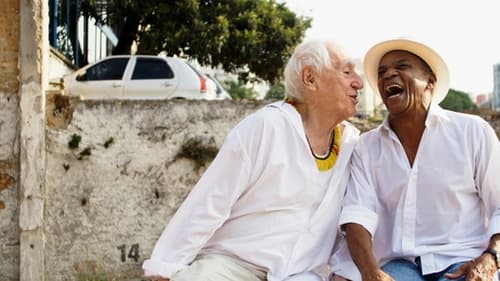
Self
This documentary investigates the aesthetic, political and existential trajectory of emblematic Black Brazilian actor Antônio Pitanga. He career spans over five decades, and he has worked with iconic Brazilian filmmakers Glauber Rocha, Cacá Diegues and Walter Lima Jr. He was a prominent figurehead and outspoken activist during the Brazilian dictatorship, a period of unrest in Brazilian cinema. Pitanga deep dives into the world of Antônio and the history of Brazil. The documentary was directed by his daughter Camila Pitanga, one of widely recognised faces in Brazilian television and cinema right now. The film is also a poem, and a tender ode to fatherhood.

Participante

A woman reads a poem, but the world doesn't seem to care.
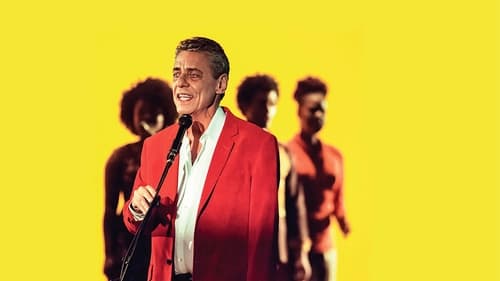
Self
Chico Buarque is a constant presence in Brazil's art scene and makes up its citizen's popular culture. This wealth in music, poems, theater and novels has been created over the last 50 years and in this film Chico Buarque converses about his memories, shows, daily life, work methods, creative process, in summary all his trajectory. The musician’s search for his German brother, whom he never got to meet, serves as one of the axis for the narrative.

cantora (Homenageada)

The film discusses decisive moments in the life and career of Cauby Peixoto. In addition to interviews and recordings of the singer's concerts, the film uses testimonials from fans and artists such as Maria Bethânia, Emílio Santiago, Agnaldo Timóteo and Agnaldo Rayol, in addition to researchers Ricardo Cravo Albin and Rodrigo Faour.

Intérprete
The show brings successes of his career, songs from the new CD and unpublished songs in his voice. In the script, songs from the new album as 'Casablanca' and 'Barulho' (both by. which inspired the album's title.

Convidada
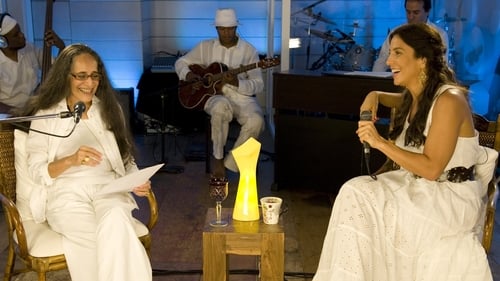
Herself
Pode Entrar: Multishow Registro is a DVD by one of the greatest singers from Brazil, Ivete Sangalo. It was recorded at the singer's house in Salvador, in a more intimate mood, when she is visited by many guests, great names of Brazilian music as Maria Bethania, Lulu Santos, Saulo Fernandes and Carlinhos Brown, among others, and the duet with her sister, Monica Sangalo, the song "Completo".
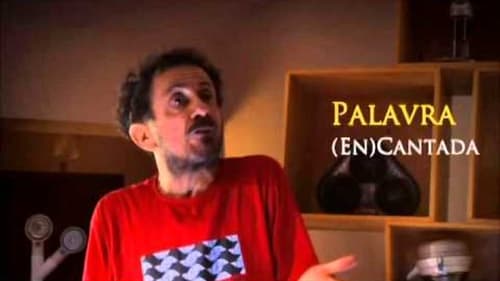
Self
Palavra (En)Cantada makes a journey in the history of the Brazilian songbook with a look at the relationship between poetry and music, sewing testimonials of great names of our culture, musical performances and amazing research of images.

Self
A host of personalities reminisce about the life and work of songwriter, lawyer, and congressman Humberto Teixeira — aka "Baião Doctor" — the author of such classic Brazilian popular songs as "Asa Branca". A musical film about the baião, a movement in Brazilian music in the 1940s and 1950s that was later snowed under by samba and bossa nova.

Herself
This film shines a light at the story of Jards Macalé, polemic artist and controversial character of Brazilian culture over the last four decades. Author of songs such as "Vapor Barato" and "Movimento dos Barcos", a partner in crime of poet Waly Salomão, guitar player and songwriter for Gal Costa and Caetano Veloso, actor and author of soundtracks in Nelson Pereira dos Santos' films, a personal friend of visual artists Lygia Clarke and Hélio Oiticica, but, first and foremost, someone who dreams of seeing the word "love" in the Brazilian flag.

Self
A unique and intimate portrait of singer Maria Bethania, that starts at the artist’s 60th birthday, celebrated during a concert in El Salvador and a Mass in Santo Amaro, her hometown, in 2006. In the same house where she spent her childhood and adolescence, and beside her mother, Dona Canô, and brother Caetano Veloso, Maria Bethânia tells us her own story and about the tunes that followed her throughout her life.

Self

Script

Self
To celebrate the life and the work of a multifaceted creator – playwright, poet, partner of the most important names of Brazilian pop music and, above all, an enlightened character of the Brazilian cultural history - director Miguel Faria Jr. gathered an incomparable cast of partners, singers, friends and rare images from the archives recalling Vinícius’ genial simplicity, with the spontaneity, the humor, and the freedom of a person chatting over a bar table, exactly how the eternal Vinícius would enjoy.

Self
A documentary on Brazilian trombone player Raul de Souza who, since 1996, has lived in Paris and suffers because he goes unnoticed, unrewarded in his native land. With the sound of his trombone for a background, the film takes him back to Bangu, in Rio de Janeiro, and retraces his trajectory.

Self
Brazilian singer Maria Bethania has a 40-year singing career. A documentary shows her concerts and famous family.

Self (archive footage)
The biggest Brazilian historical festival of all time. The great cast of the 1973 Phonogram (now Universal Music) meets in three nights to protest against the curtailment of freedom of expression in those dark years of the dictatorship. With the images rescued in 2005, revealing exciting moments, containing the incredible presentations, it brings a team of all greatness and the opportunity to understand the path that Brazilian music has taken to the present day.

Self

O DVD intitulado Estampado da cantora e compositora Ana Carolina traz grandes sucessos e músicas inéditas na voz desse ícone da música brasileira. Você pode conferir faixas novas como "Escurinho", "Gente Humilde" e "Oração de São Francisco de Assis", além da interpretação da canção "Corsário" acompanhada pelo violão de João Bosco. O disco ainda conta com participações especiais de Chico Buarque, Chico César e Maria Bethânia. Imperdível!

Narrator
Writer and poet Clarice Lispector investigates and develops the old question of what came first, the egg or the chicken.
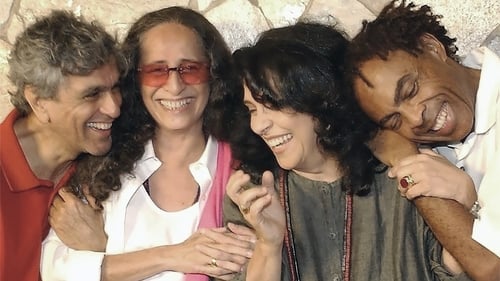
Self
Almost thirty years after the first reunion of Doces Bárbaros (four of Brazil's major popular music stars: Caetano Veloso, Gilberto Gil, Gal Costa and Maria Bethânia), the artists involved decided to get together again for limited concerts in São Paulo and Rio de Janeiro, in December 2002. The film documents the group's live performances, rehearsals and interviews.

Self
This is a journey of friendship, an Argentinian is going to rediscover his continent while searching for his friend from Bahia. And while the work, the records and the career of this great lady of Brazilian music are well known, the starting point, the training, the first years remained till now in a vaguely legendary and imprecise blur. Thanks to many investigations that concern as many places as times, thanks to journeys back in time through the towns and regions, the film seeks the origins of Maria Bethânia’s voice and style. Helped and led by Bethânia herself, with the assistance of Caetano Veloso and Chico Buarque, the two princes of Brazilian music, along with the complicity of the great Gilberto Gil, the author is allowed to go to the first context : the North-East. In the family home in Santo Amaro, the film finally touches the childhood of Maria Bethânia – and her brother Caetano, and this mysterious point – from which the music radiates.

Recorded at Canecão in 2001, this historic show celebrates Maria Bethânia's 35-year career with guest appearances from MPB. The DVD also shows testimonials from various artists and the soundtrack that was the beginning of this great and memorable party.

Self

Self
Documentary that celebrates 100 years of cinema in Latin America and talks about the origins and the development of cinema in this subcontinent. Its structure is based in 12 short films directed by various Latin American directors. These are: 1) "Los inicios", Iván Trujillo 2) "Cuando comenzamos a hablar", María Novaro 3) "Jugando en serio", Jacobo Morales 4) "De cuerpo presente [Las espirales perpetuas del placer y el poder] Cine Mexicano [1931- 1997]", Marcela Fernández Violante 5) "Cuando quisimos ser adultos", Edmundo Aray and David Rodríguez 6) "Cinema Novo", Orlando Senna 7) "Memorias de una isla, Juan Carlos Tabío 8) "Un grito, 24 cuadros por segundo", Julio García-Espinosa 9) "El día de la independencia", Federico García 10) "¿Sólo las formas permanecen?", Fernando Birri and Pablo Rodríguez Gauregui 11) "Todo final es un principio", Andrés Marriquín.
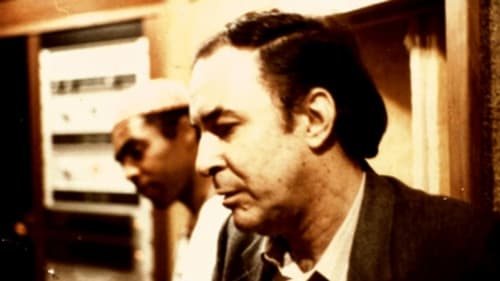
Self
João Gilberto receives Caetano Veloso, Gilberto Gil and Maria Bethânia during the recording of his album Brasil.

Self
Этот фильм - длительное интервью с известным молодым певцом, рассказывающим о своей жизни, о проблемах развития популярной музыкальной культуры Латинской Америки, отражающей подлинные интересы и чаяния народа.
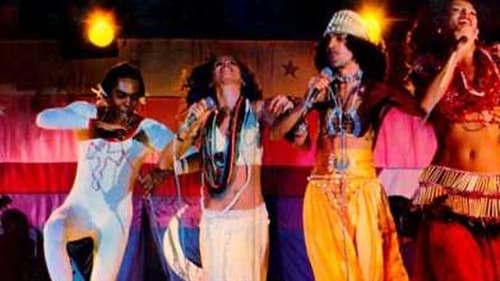
Self
The film records the commemorative tour of the ten years of the career of the Bahia singers Caetano Veloso, Gilberto Gil, Maria Bethânia and Gal Costa, who formed the group with the name of Doces Bárbaros (Sweet Barbarians), at the suggestion of Bethânia. Conceived to present the shows of the live album that would be released (Doces Bárbaros - Live), the documentary changed of tone when registering the arrest and judgment of Gilberto Gil and of a companion by possession of drugs. Gil was forced to go to a detox clinic, and only went out to participate in the programmed shows.
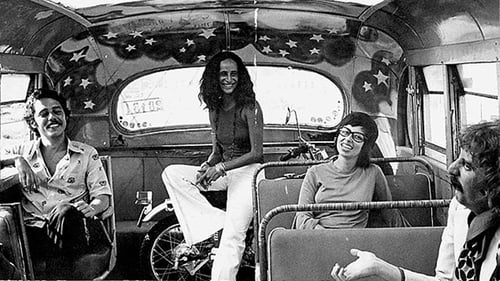
Rosa
Music manager has to get three of his artists together for a special show, but soon finds out it isn't an easy task.

Herself

Self
Documentary about Brazilian music circa 1969, with extremely rare scenes, such as the only color footage of Pixinguinha, images of João da Baiana, one of the fathers of Samba, Maria Bethânia rehearsing at Barroco nightclub, Baden Powell playing his acoustic guitar, Paulinho da Viola showing his masterpiece "Coisas do Mundo, Minha Nega", that he had just finished, and Márcia, a singer from São Paulo.

In a fictitious country, civil servant receives the greatest inheritance in history (ten trillion dollars) and is confined by authorities because he could break world economics. But he manages to escape.

Chronicles the life of a 17 year-old girl living in the upper-class Rio de Janeiro neighbourhood of Ipanema. Márcia lives a life of parties and spend her days among bohemians, musicians and intellectuals. While seeming happy in the outside, she's extremely anguished inside. Based on the famous song by Antonio Carlos Jobim and Vinicius de Moraes.

Originally produced for German TV, Improvised and Purposeful is a firsthand look at the "Cinema Novo" movement (otherwise known as the 'Brazilian New Wave'). Director Joaquim Pedro de Andrade focuses on six Cinema Novo filmmakers working in Rio in 1967.
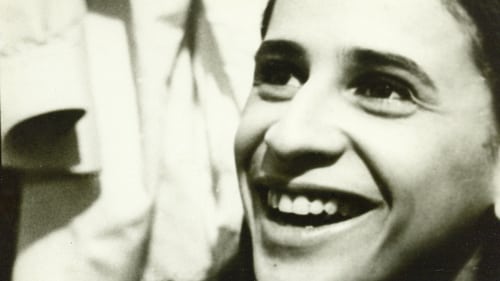
Self
Documentary about Maria Bethânia, at the very beginning of her career as a singer, when she arrived in Rio da Bahia to replace Nara Leão in the show Opinião. Bethânia's appearance, at that time in southern Rio, was a cultural shock that shook the city. The film also contains scenes of her daily life and meetings with other musicians.
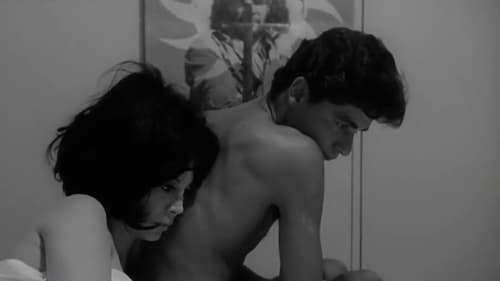
Herself
Passively facing the repression imposed by military dictatorship in Brazil in the 60s, a journalist gets into a personal crisis, aggravated by his love affair with an industrialist's wife, who doesn't want to leave her home because of her son

























